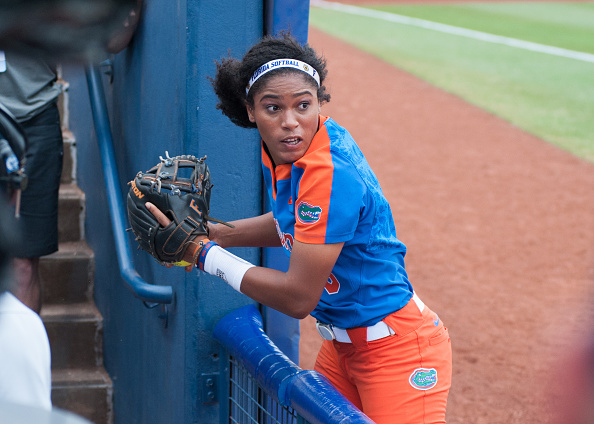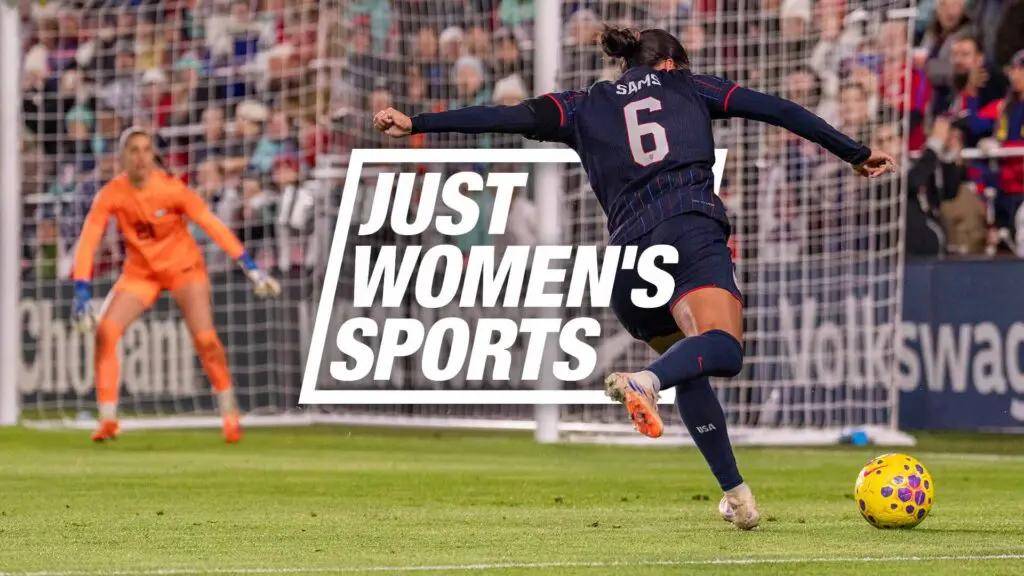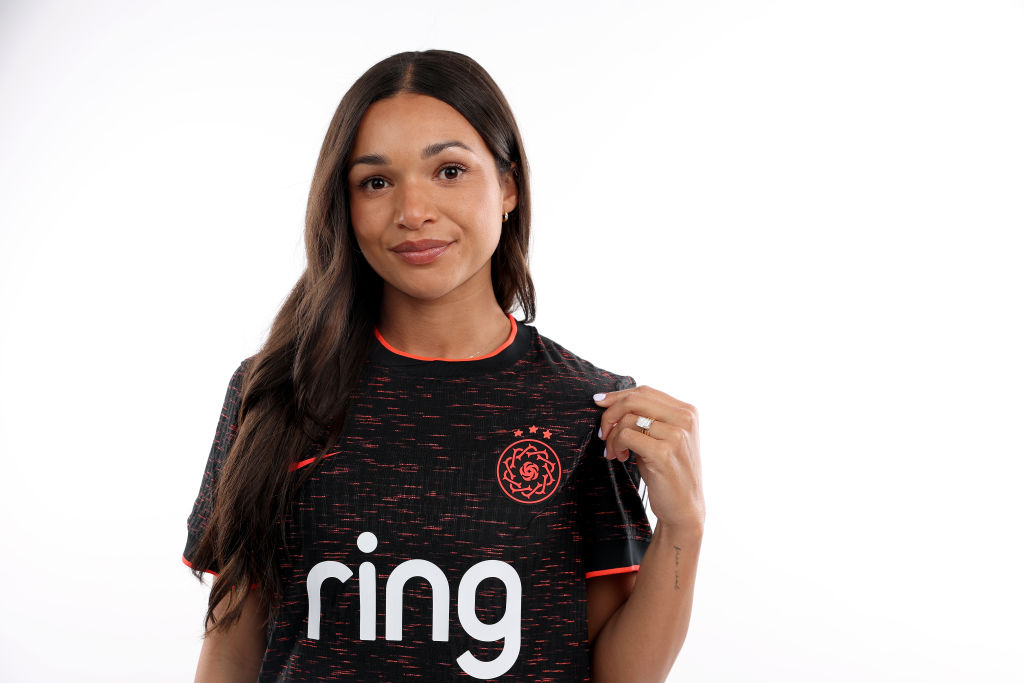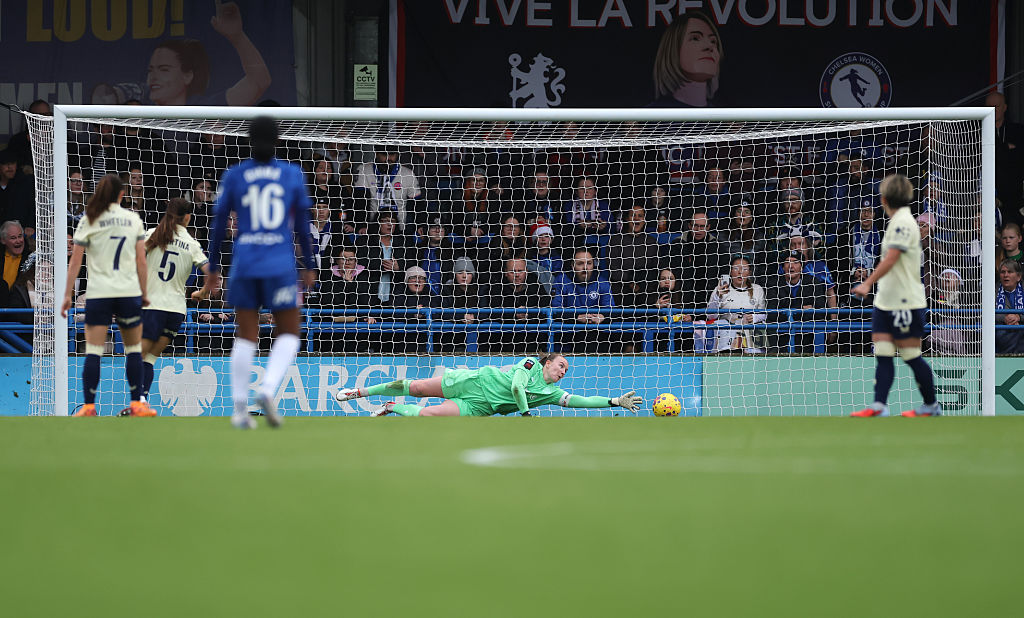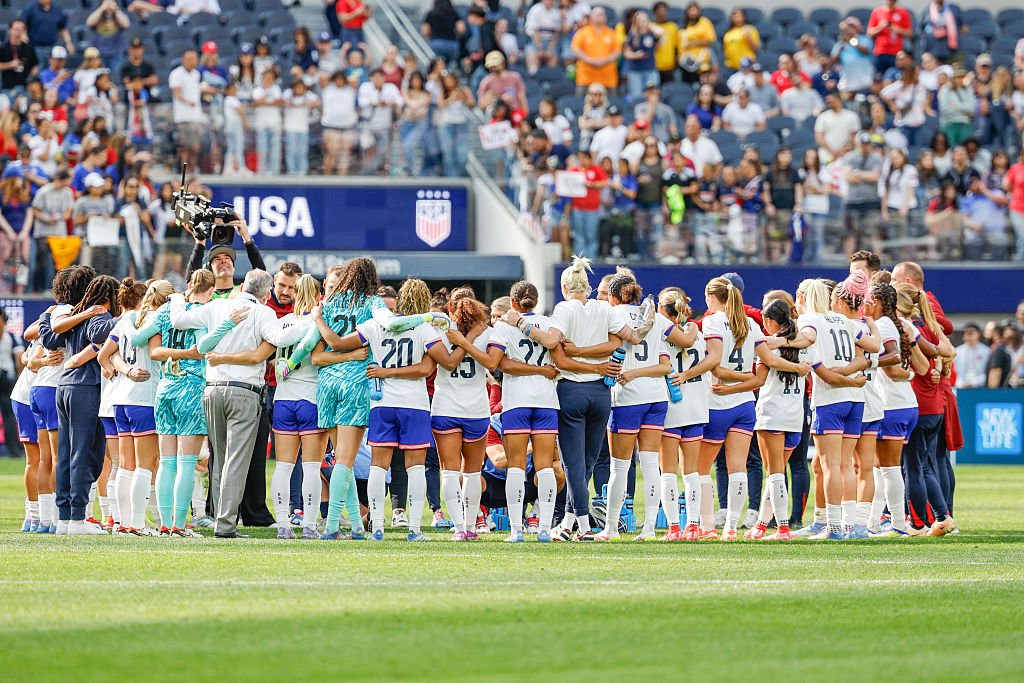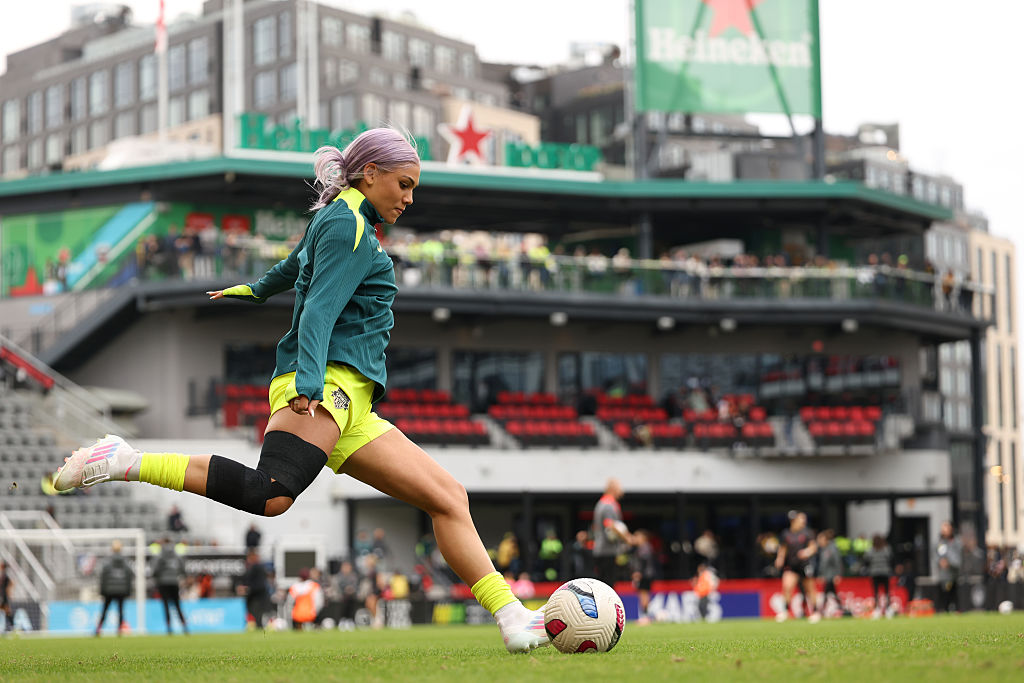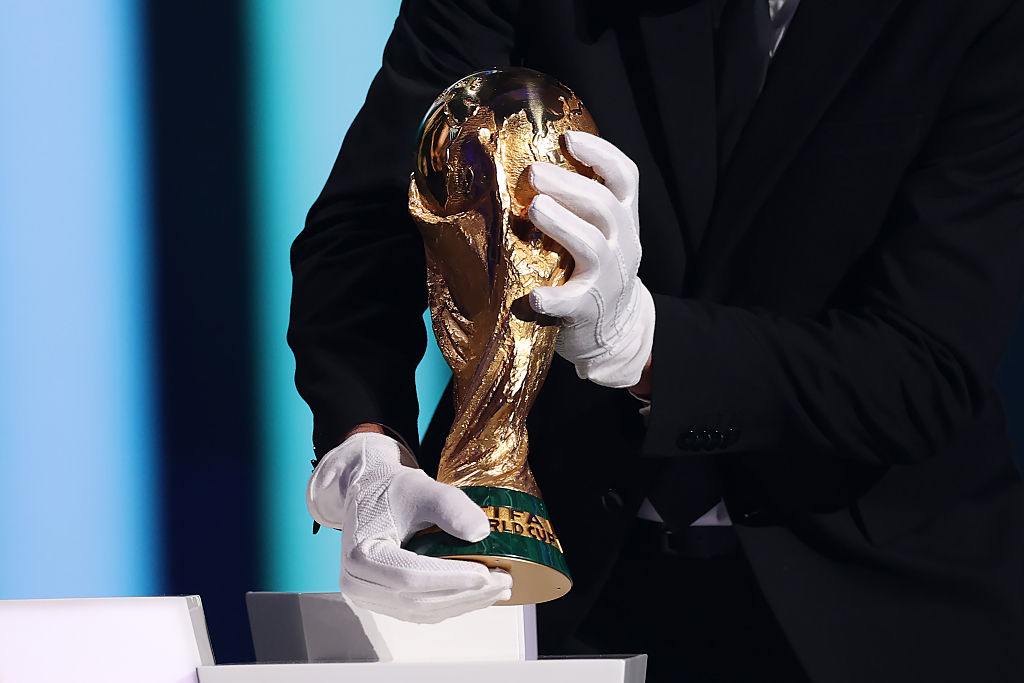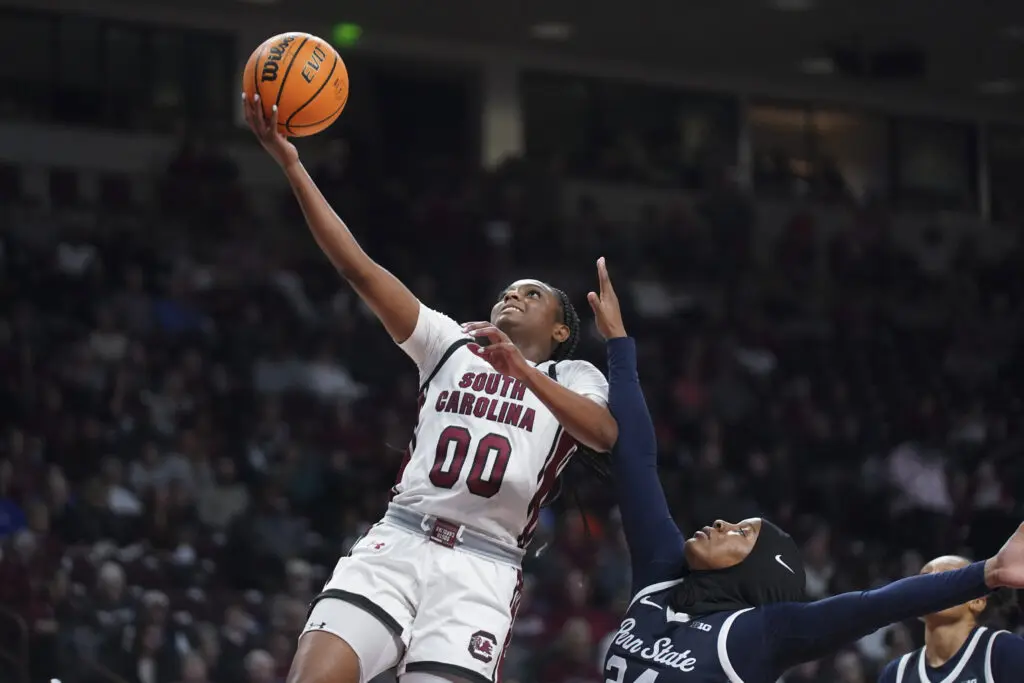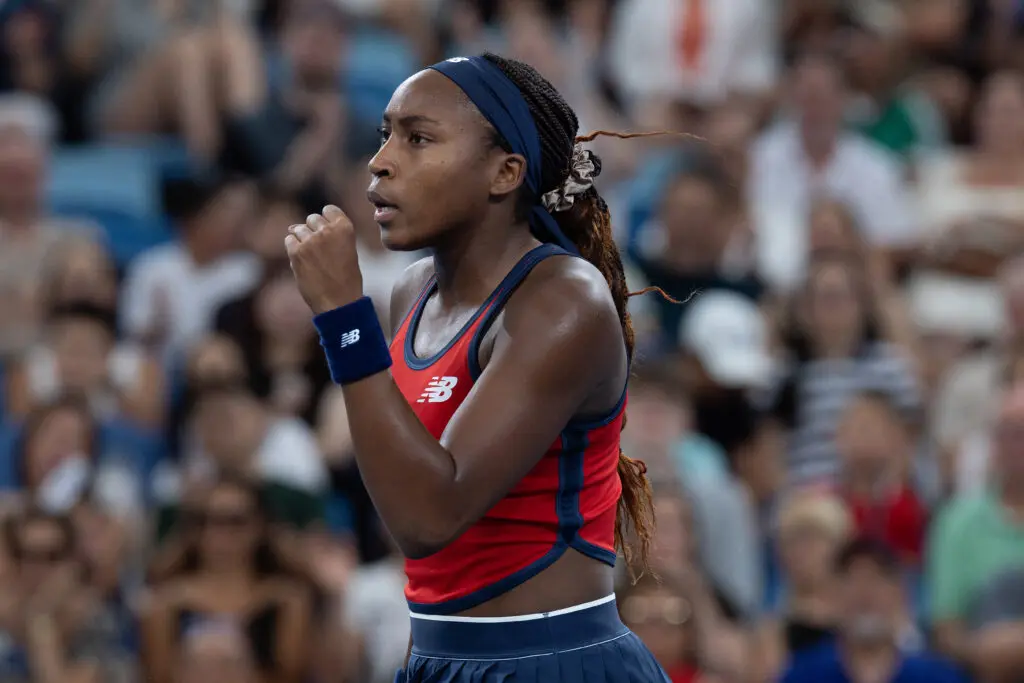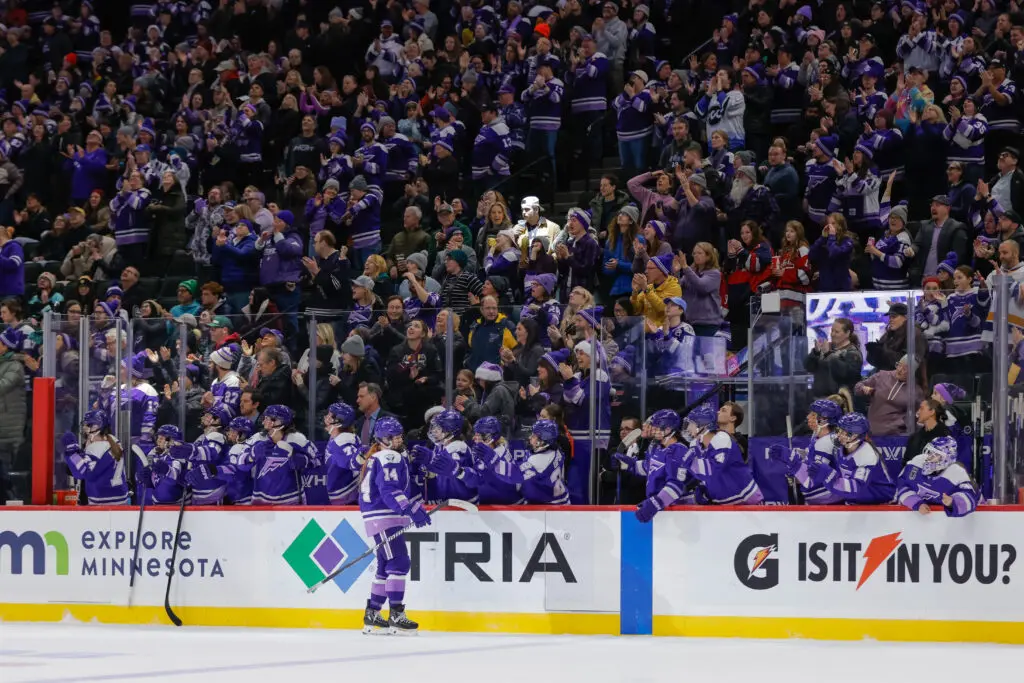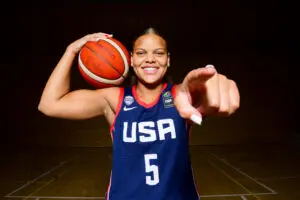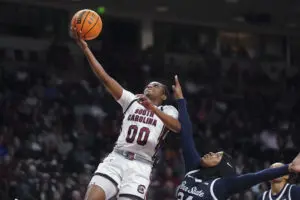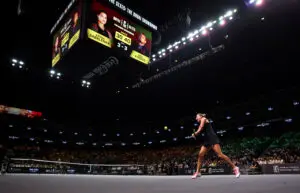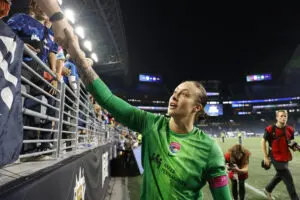Aleshia Ocasio is a professional softball player for Athletes Unlimited, a new, player-focused pro league coming to the Chicago metro area this August. A graduate of the University of Florida, Ocasio helped lead the Gators to the 2015 WCWS Championship. Below, she spoke with Just Women’s Sports about what it means to her to be a LGBTQ athlete, why she signed on with Athletes Unlimited, and the importance of using her platform to push for social change.
What does it mean to you to be openly part of the LGBTQ community in sports?
I think for anybody it is important to stay true to yourself, and understand that you are unique, and that what’s normal in other people’s eyes is not necessarily always the case. I feel like, more now than ever, people are normalizing being in the LGBTQ community because you look at history and you look at how it was taboo to even speak about being gay, lesbian, bisexual. So I’m openly bisexual and I’m proud to be in the community and to be playing a sport that is so open. There’s a lot of representation in the game of softball as far as LGBTQ. I’m happy to be part of a sport that is open arms.
Do you think that being an athlete helped give you the confidence to come out and to be true to yourself?
I don’t necessarily think so. I have a great support system. Before anybody knew, I told my parents, and that was it. They were so open. They were like, I love you. I don’t care who you love. And I think that gave me the confidence to kind of be more open to living in my own truth. When you have a support system that welcomes you with open arms and unconditional love, I think that lays the foundation for you being comfortable with who you are.
How do you think attitudes towards LGBTQ athletes have changed during your lifetime?
So I came out openly in college and I don’t necessarily remember anybody talking about being gay, being lesbian, as necessarily a bad thing. And I’ve known plenty of people that have been in the community growing up as well. It’s never been something that was frowned upon. I just feel like I found myself growing up and figuring out who I was and what I liked and what drives me. So I feel, like I said, in softball, there’s a wide community of LGBTQ athletes, and I’m just happy to be in a place that has open arms.
In a recent Athletes Unlimited video, you talked a lot about how there’s a wide representation of LGBTQ athletes in softball but how there’s also a lot of stereotypes. Can you speak to that?
I think that growing up, you look at softball, you look at basketball, and you automatically think, well, they’re gay. Like that’s the stereotype, no matter what you look like or even if you are straight. Cool, but, you know, there’s always a stereotype there. Even in high school, I remember people coming up to me, “You play softball, so you must be gay.” And at that time, I wasn’t fully aware of who I was. So I’m like, you know, whatever. I never really fought against it. I was just like, “You know what? You think what you think.” I know that there is a wide representation of both straight and LGBTQ women in the sport. And I hope that people are open to understanding that not only in softball are there LGBTQ representations, but in every sport, whether you know it or you don’t.
I do see in the world that it’s becoming more accepted. As I grow older, I realize that. I feel like people are starting to understand that every sport, including softball, has large representations of both straight and LGBTQ athletes. So I don’t necessarily see the stereotyping as often as I used to. But like I said, in high school people would tell me I play softball, so I have to be gay.
How inclusive do you feel like softball is as a whole? What can it do to improve?
When I think of softball and inclusion, I automatically think how much equipment is needed in order to even play the game. So my head automatically goes to adolescent kids who don’t necessarily have the means to buy these loads of equipment. We have the opportunity to play it, but some lower income areas don’t necessarily have the funds in order to provide the equipment to play the game. I’ve had talks with multiple people throughout the past couple of weeks about diversity and inclusion. And I think it starts with our youth. I think we have to give them the opportunity to play these team sports that require so much equipment.
You look at softball and you see your one or two black players on a softball team. I hear people talk about it all the time, the tokens on the team. We have to be above average to be considered average on a team full of our white counterparts. We’re stereotyped in our own community. We’re on a team and we’re looked at as the fastest. And some of these stereotypes aren’t necessarily negative, because a lot of times we are the fastest, but we’re put into a bubble of what we have to be because of the color of our skin. You see that a lot. I saw that a lot. I’ve heard that a lot. I’ve dealt with it a lot. But as far as inclusion, to get more diversity in the game of softball, I think it starts with our youth and giving them the tools in order to be able to play in the lower income areas. We have to focus on equity. We have to infiltrate those communities with the equipment, so they know that it’s accessible.
Do you feel obligated as an athlete to use your platform to speak out about these issues?
I feel more than obligated. I feel like it’s a priority to be able to, and it’s a privilege to be able to use my voice, and I’m taking full advantage of it. Being a woman of color, being in the LGBTQ community, it is so important that I’m able to use my voice so that I can represent people who look like me and feel the way that I do. Having a platform as an athlete, it’s so important to be the voice for people who don’t necessarily have one, so they can know they have somebody to look up to.
And I have seen a lot of people speak up in the softball community. A lot of our white counterparts are reaching out and they’re educating themselves. I see a lot of talk on social media. I see a lot of forums and Zoom calls going on, but I just want to challenge everybody to remember that this isn’t a sprint, it’s a marathon. And we’ve got to have stamina to be able to create change. But I think now more than ever, the timing matters… As far as this movement and then Pride month, I think that they’re both important. I feel that we’re both communities that are lacking. So I’m running with my BLM. I’m advocating for my LGBTQ community. Right now, I feel like my calling is to educate people and to allow them to see the systemic racism and the underlying, the overt and covert racism that plagues our community as much as COVID does, as much as anything else does and even more so.
I wanted to switch gears and talk a little bit about Athletes Unlimited. What are your thoughts about the league and what are you excited about?
I was really skeptical at first to sign my name on the dotted line just because of the dynamics of the league. We talk about team sports and, you know, we’re on a team for a season, for multiple games, and you look at Athletes Unlimited and we’re switching teams every week. So I was initially skeptical, but after talking with other players and hearing the investors speak about this, I feel like this is a good opportunity to change the game.
I really have high hopes for this league. I feel like it’s going to bring on more viewership as opposed to how the NPF has been the past couple of years. And two, we talk about equal pay. Your average person on the NPF was making, I think like five to ten thousand, and I think the base compensation for Athletes Unlimited is around ten. So you have so much room for bonuses and to earn extra money. And granted, we’re still not where we want to be because our MLB counterparts are making… well, they have no salary cap. We’re talking about just a tiny step in the right direction. But again, I really hope that this takes off. It’s going to be a little bit different, but I’m excited to see how it all pans out.
What has training looked like for you right now?
With quarantine, it’s been kind of tough to stay motivated. It’s been challenging. It’s easy to kind of lose yourself when everything is on lockdown. But I have a bunch of equipment at home. I have tees, nets, softballs. Anything you can imagine, I have. I’ve been setting my tee up and my net outside, getting some hits in. I’m actually going somewhere today to hit in the cage for probably the first time in months. But I’ve been doing what I need to do. I got my Apple watch and my activity logs on it. So I’m making sure I’m tracking my workouts.
I really think that this quarantine was a good time to kind of take a step back and think about the passions I have beyond softball. But I for sure have been working out and staying active. I think it’s really important to be able to stay in shape even if we’re not playing because it makes the transition back so much easier.
As a last question, if you don’t mind me asking, what are some of those passions that you have outside of softball?
I’m actually working on an apparel brand. I’m really excited about it. It’s going to be just women’s fitness gear, if you need sets and sports bras and stuff. I’m coming out with a couple of pieces. We’ll figure out when the date is. I would like it to launch it August 15th, on my birthday. But the way things are going with COVID, it’s a little bit slow. But I’m really excited about that. I even bought a sewing machine and everything.
